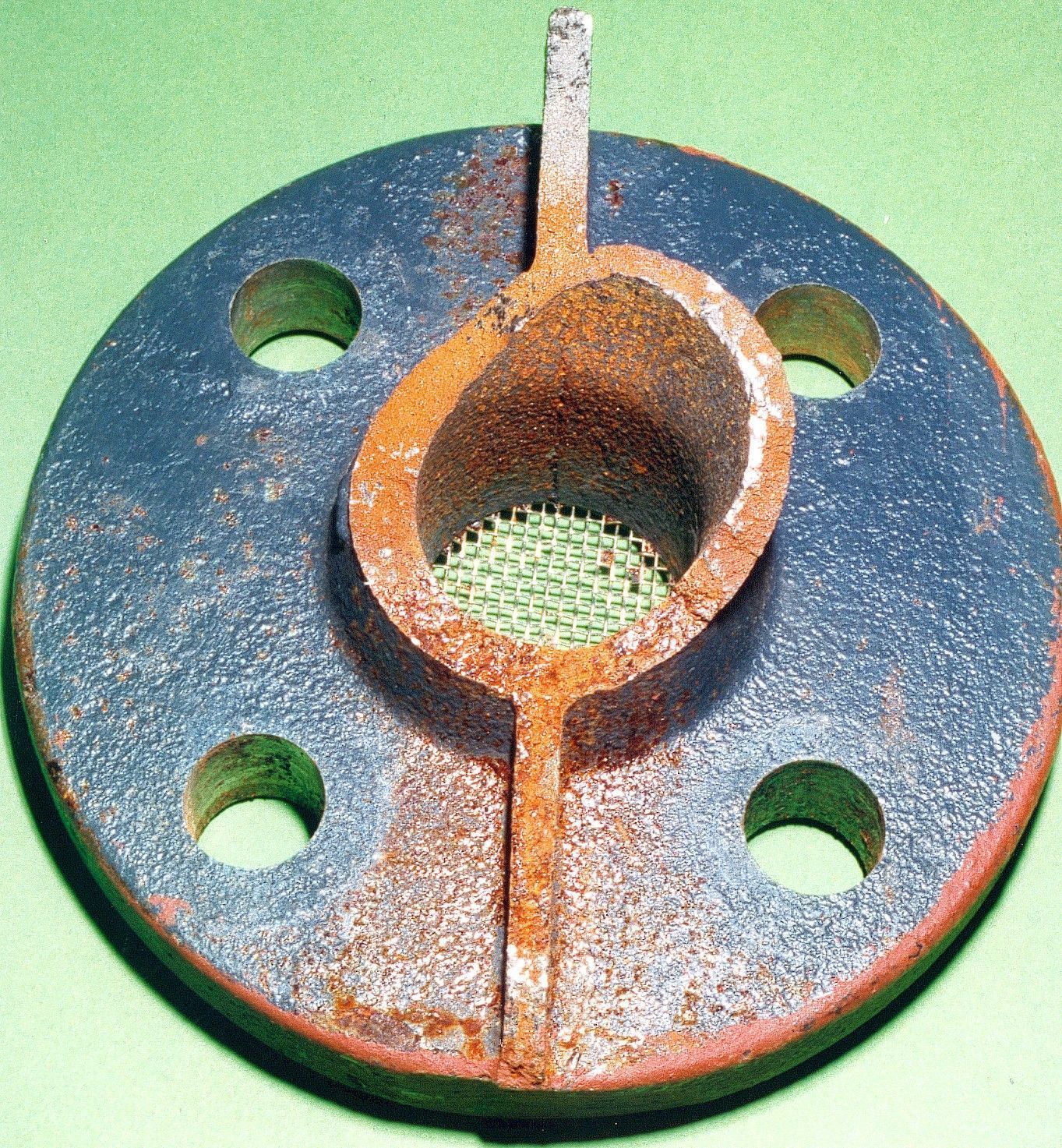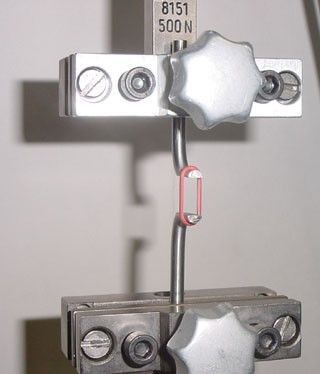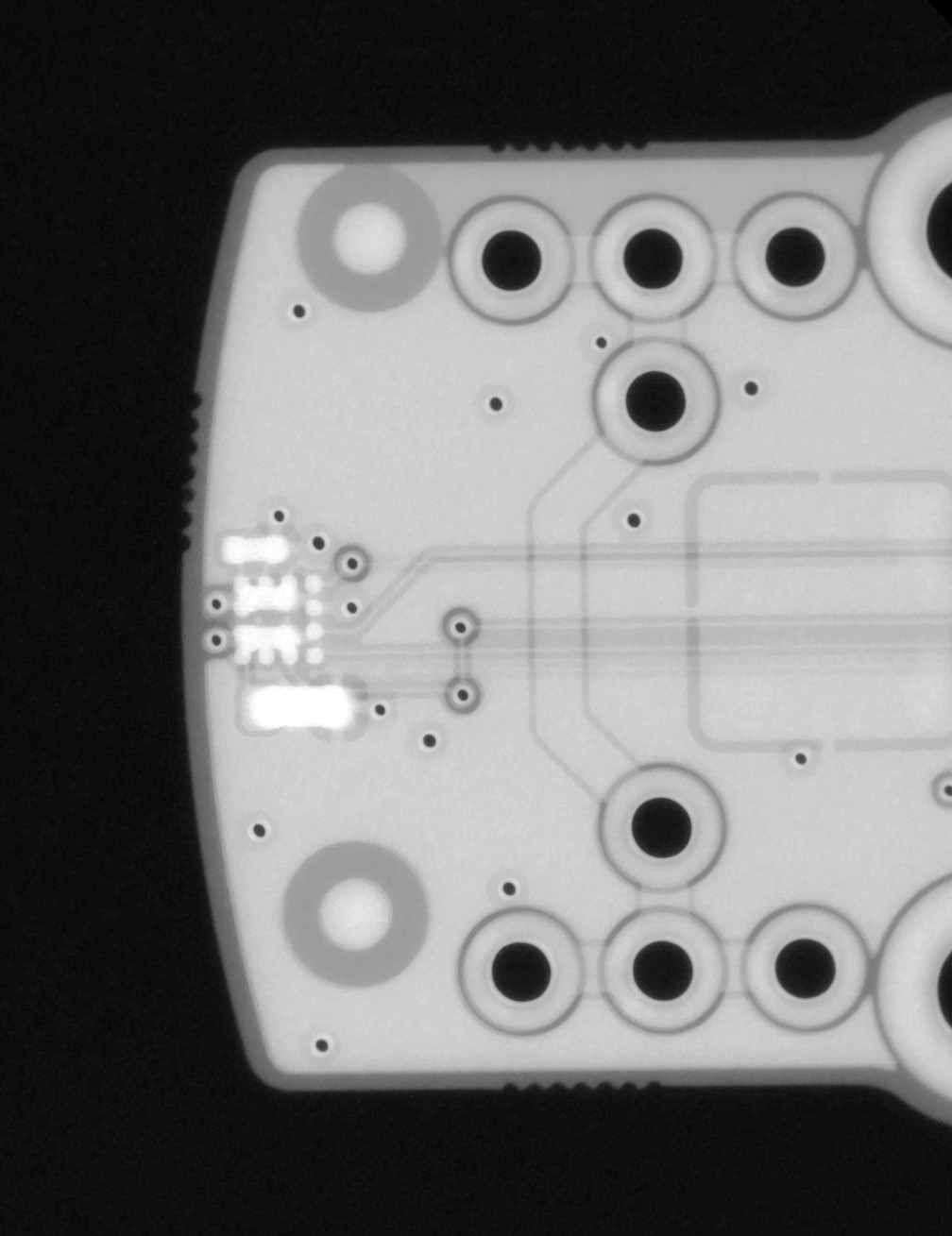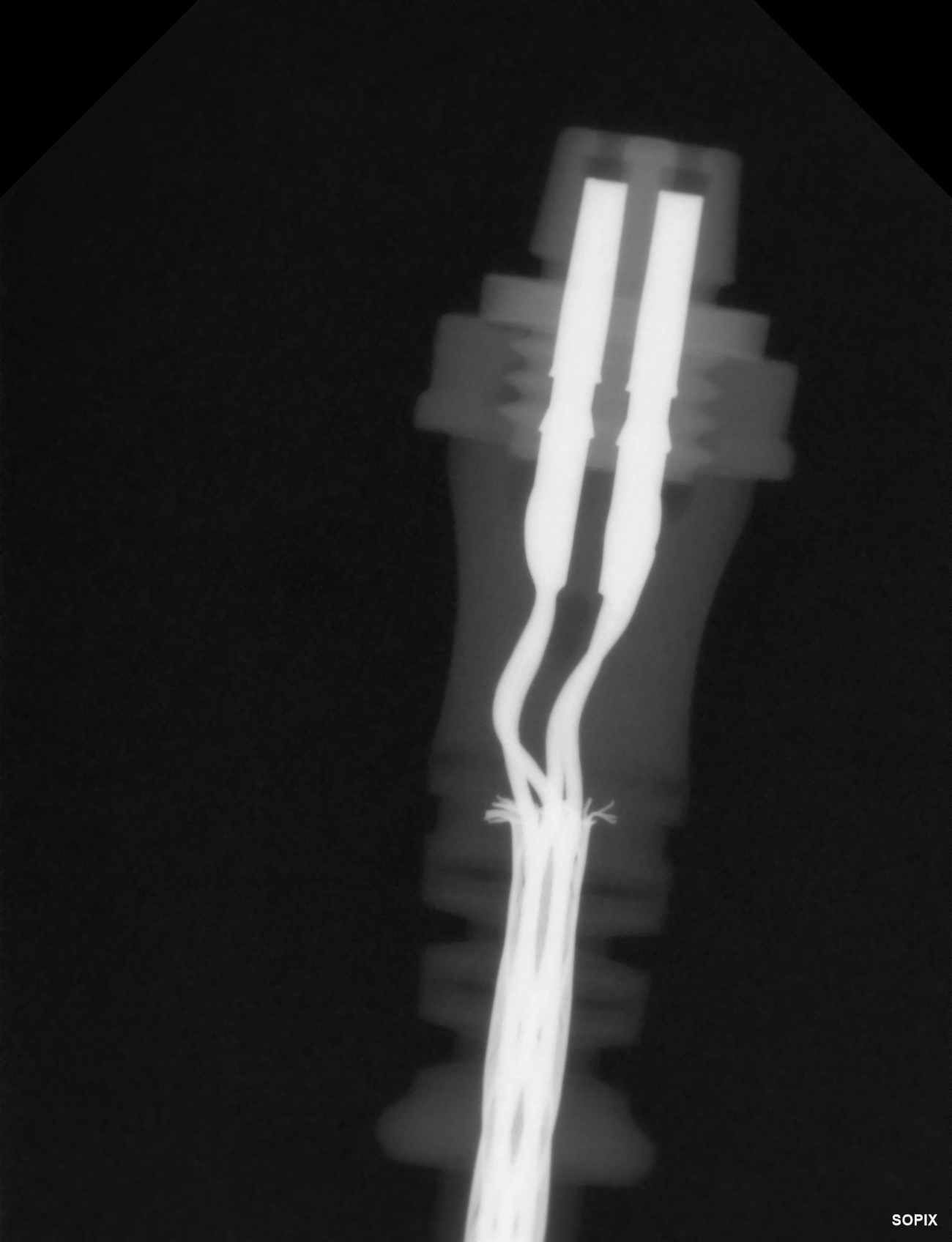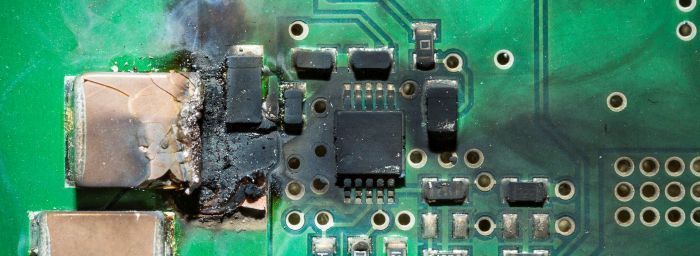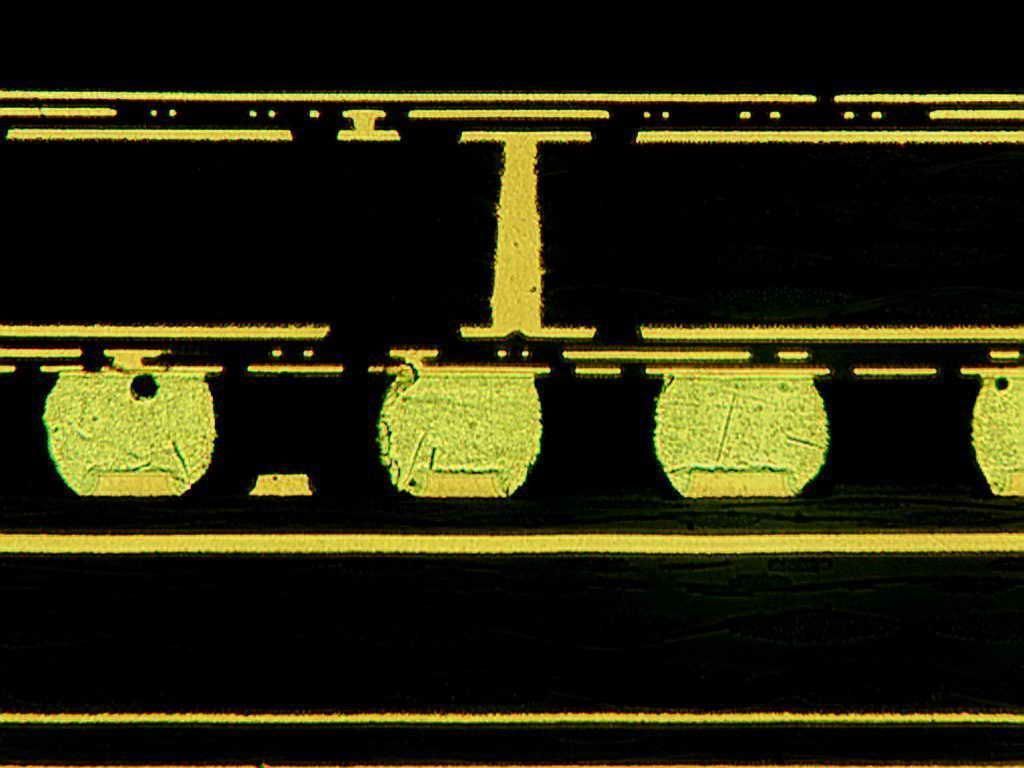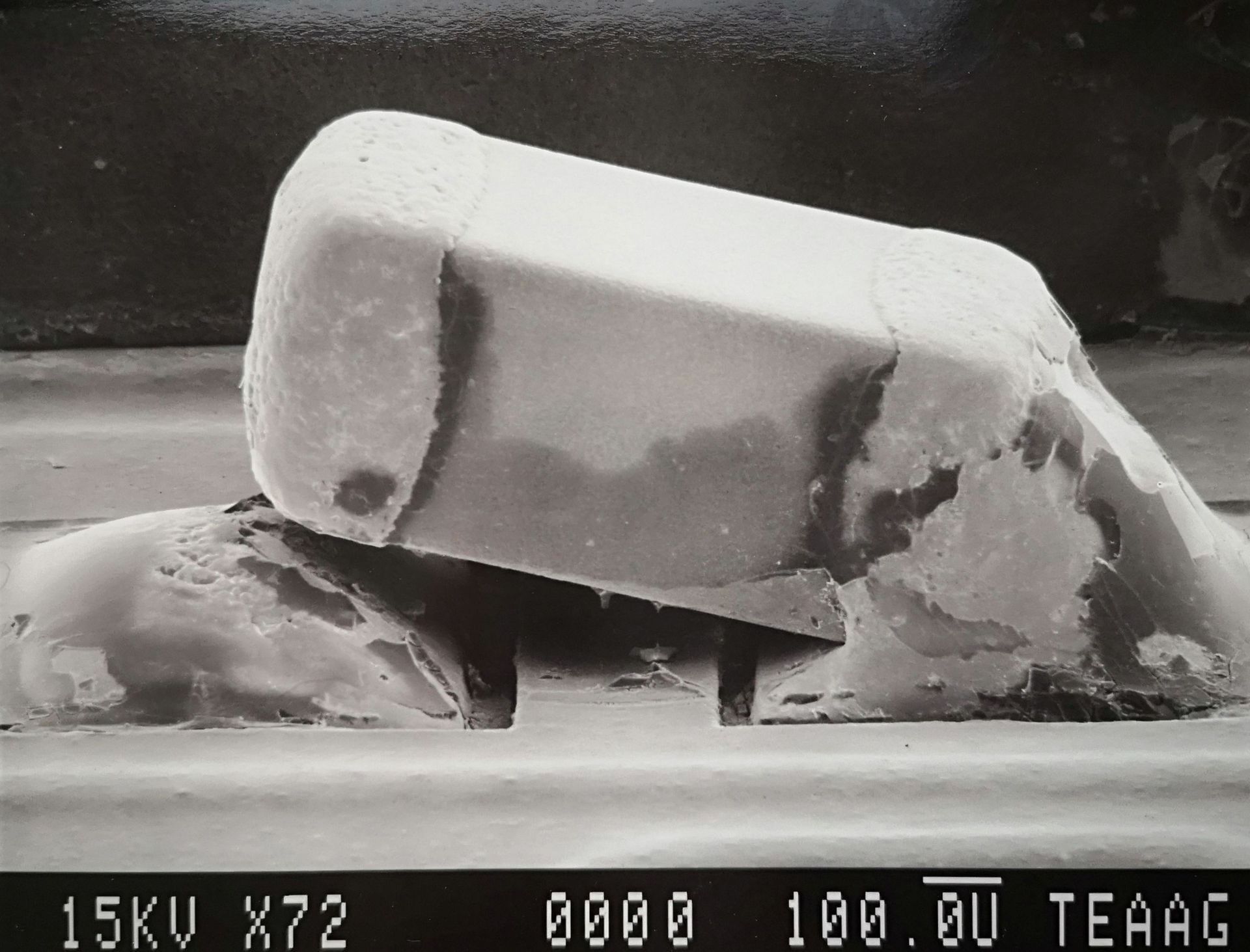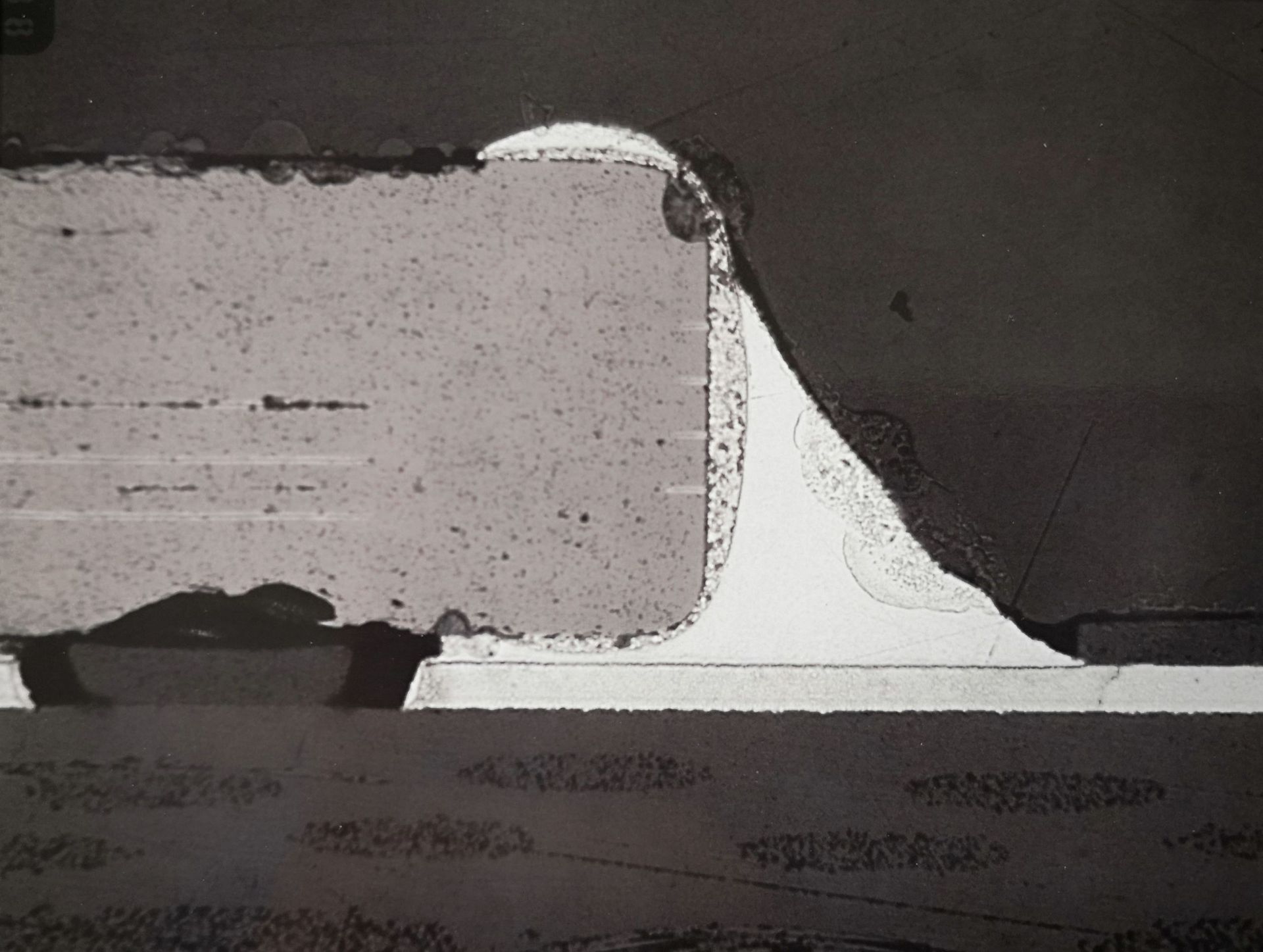Material engineering
Material testing
We analyse materials and perform routine tests on components and assemblies, which include testing and analysing a range of properties.
- Testing specific material properties
- Tensile, pressure and hardness tests
- Part, component and device failure analysesX-ray analyses (digital sensor)
- Part, component and device failure analyses
- Chemical resistance
Damage analyses
- Fire cause analyses for devices and circuit boards
- Insulation failure and electrical breakdown analyses on parts, components and devices
- Part and component wear
- Corrosion, oxidation and surface changes on parts, components and devices
- Solder joint, screw coupling and crimp connection assessments
Identifying and eliminating the causes of failures is key to assuring a product’s safety and reliability.
Services and standards
Tensile, pressure and hardness tests
- Universal testing machine,
single shaft, up to 100 kN
- Hardness testing HV, HB, HRC
- Shore hardness testing
Metallography
- X-ray testing up to max.
100 kV
- Sample preparation
- Metallurgical microscope up to 1:1000
- Grain size determination
- Coat thickness measurement
- Structural analyses
Electrical connectors
- Resistance
- Insulation resistance
- Electric strength
- Electrical crimp performance
Chemical resistance
- Preliminary treatment
- Chemical application
- Inspection
EN 10002
ISO 527-1
ISO 6506-1, 6507-1, 6508-1
IPC-TM-650
MIL-STD-883
DIN EN ISO 1463
IPC-TM-650
IPC-A-600F
IPC-A-610D
ASTM E-3-1
MIL-STD-2118
MIL-STD-883
IEC/EN 60512-2-1
IEC/EN 60512-2-2
IEC/EN 60512-3-1
IEC/EN 60512-4-1
SAE/USCAR-21
ISO 16750-5
IEC/EN 60068-2-45
DIN/EN 2591-315
MIL-STD-883, RCTA DO-160



